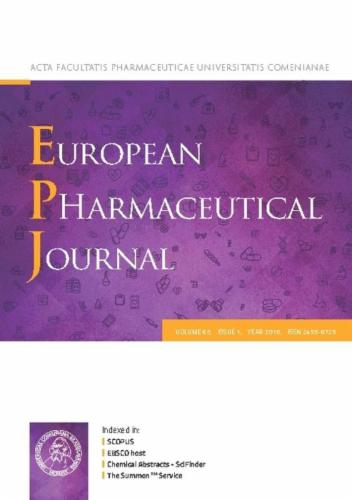Advancing Direct Tablet Compression with AI: A multi-task framework for quality control, batch acceptance, and causal analysis
IF 4.7
3区 医学
Q1 PHARMACOLOGY & PHARMACY
引用次数: 0
Abstract
Pharmaceutical manufacturing has surged in drug development with the rise of Pharma 4.0, leveraging artificial intelligence (AI) to improve efficiency, optimize resource use, and reduce production times. Direct Tablet Compression (DTC), a key manufacturing technique, depends on the physicochemical properties of active pharmaceutical ingredients (API), excipients, and process parameters. This paper presents a novel multi-task framework combining regression, classification, and text generation to predict tablet properties (friability, hardness, disintegration time, and water absorption ratio), determine batch acceptance, and provide insights for optimizing interactions to improve tablet quality. The framework not only enables real-time monitoring, quality control and regulatory compliance, but also helps to understand the reasons why tablets in the manufacturing batch do not meet quality requirements. Using statistical methods, Neural Networks (NN), Natural Language Processing (NLP), and generative AI (GenAI), it outperforms state-of-the-art methods, achieving 91.8% and 95.5% accuracy for regression and classification, respectively, as demonstrated using the Harvard Dataverse V1 dataset of Fast Disintegrating Tablets (FDTs) non placebo.

用AI推进直接片剂压缩:用于质量控制、批量验收和原因分析的多任务框架。
随着制药4.0的兴起,制药制造业在药物开发方面激增,利用人工智能(AI)提高效率,优化资源利用并缩短生产时间。直接片剂压缩(DTC)是一项关键的生产技术,它取决于活性药物成分(API)、辅料和工艺参数的理化性质。本文提出了一种新的多任务框架,结合回归、分类和文本生成来预测片剂性能(脆性、硬度、崩解时间和吸水率),确定批次验收,并为优化交互作用以提高片剂质量提供见解。该框架不仅可以实现实时监控、质量控制和法规遵从,还有助于了解生产批次中片剂不符合质量要求的原因。使用统计方法、神经网络(NN)、自然语言处理(NLP)和生成式人工智能(GenAI),它优于最先进的方法,在回归和分类方面分别达到91.8%的R2和95.5%的准确率,如使用Harvard Dataverse V1数据集的快速分解片(fdt)非安慰剂所证明的那样。
本文章由计算机程序翻译,如有差异,请以英文原文为准。
求助全文
约1分钟内获得全文
求助全文
来源期刊
CiteScore
9.60
自引率
2.20%
发文量
248
审稿时长
50 days
期刊介绍:
The journal publishes research articles, review articles and scientific commentaries on all aspects of the pharmaceutical sciences with emphasis on conceptual novelty and scientific quality. The Editors welcome articles in this multidisciplinary field, with a focus on topics relevant for drug discovery and development.
More specifically, the Journal publishes reports on medicinal chemistry, pharmacology, drug absorption and metabolism, pharmacokinetics and pharmacodynamics, pharmaceutical and biomedical analysis, drug delivery (including gene delivery), drug targeting, pharmaceutical technology, pharmaceutical biotechnology and clinical drug evaluation. The journal will typically not give priority to manuscripts focusing primarily on organic synthesis, natural products, adaptation of analytical approaches, or discussions pertaining to drug policy making.
Scientific commentaries and review articles are generally by invitation only or by consent of the Editors. Proceedings of scientific meetings may be published as special issues or supplements to the Journal.

 求助内容:
求助内容: 应助结果提醒方式:
应助结果提醒方式:


